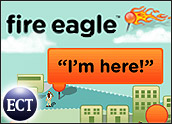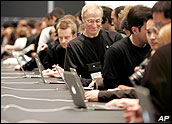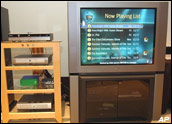
Yahoo is helping make location more global with the launch of its new Fire Eagle platform. Fire Eagle lets users update their location in one centralized place, then have that data broadcast to a number of services.
The launch opens up new possibilities for developers. Because the platform is open, any service can put the data to use — and plenty already are.
An Eye on Privacy
Fire Eagle offers users the ability to provide physical location information either manually or automatically, using a GPS-enabled device or other mobile system. It also gives the option to control how and with whom that information can be shared.
“Fire Eagle is about making everything on the Internet more useful, fun, or interesting by adding the element of location,” Tom Coates, head of product at Yahoo Brickhouse, explained. “We’re here to help people take their location to the Web by giving them the ability to control how much detail about their location they want to share and which applications they want to share it with.”
Early Adoption
Dozens of developers have already started integrating the technology into their sites. Movable Type, Pownce, and Dipity were among the first to test the tool during its beta phase.
“One of the early ways our users started to use Dipity was to aggregate a lot of their social media content into one place — pulling their blog posts, their Flickr photo streams, their Tweets from Twitter, stuff like that,” Dipity CEO Derek Dukes told TechNewsWorld. “We thought, well, the one missing piece is location for a lot of stuff,” he said.
Users could, Dukes pointed out, set locations on some of those individual services. Most of them, however, didn’t bother; there were simply too many separate places to update status, he said, and the process proved to be too much of a hassle.
“There was no real elegant solution at the time,” Dukes noted.
Developer Perspective
While it’s too soon to get a widespread reaction, Dukes believes the Fire Eagle addition will be well-received by his users — and from a developer’s standpoint, his team had no complaints.
“It was pretty straightforward,” he commented. “Yahoo’s been active in the developers’ community for a couple years now, and they’ve really figured out how to create a service in a way that can be integrated with little overhead from the integrating partner.”
Fire Eagle was conceived at Yahoo’s Brickhouse — a testing ground of sorts for smaller innovations.




















































